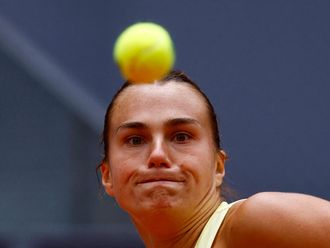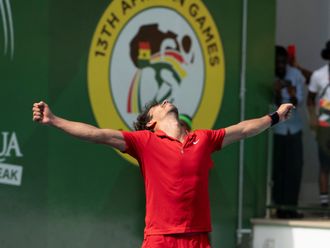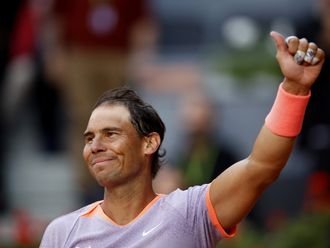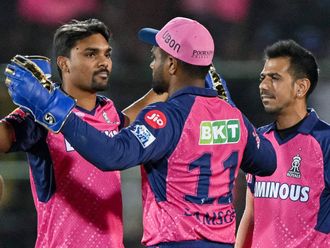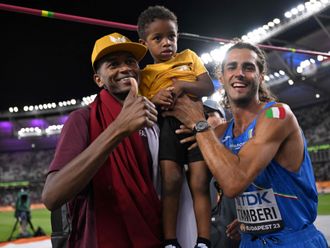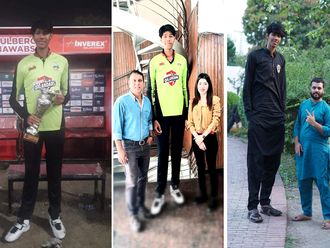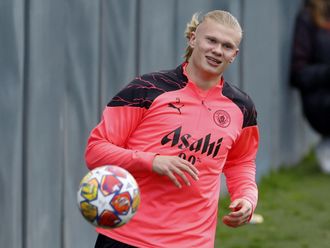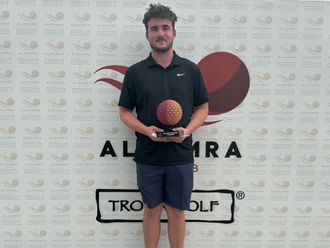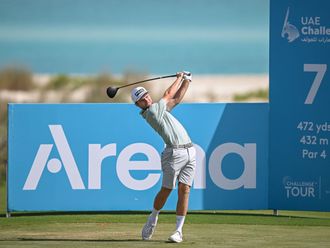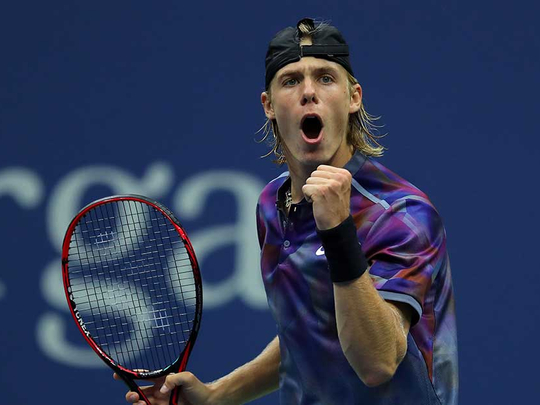
New York: There are certain moments in sport when the whole landscape tilts. We saw a good example at the US Open on Sunday, when Denis Shapovalov put down his holdall on the way off Arthur Ashe Stadium and thanked the fans for their support.
Shapovalov, an 18-year-old from Ontario, had to come through qualifying at Flushing Meadows after starting the American hardcourt season as the world No 161. Now here he was, accepting a standing ovation from 20,000 fickle New Yorkers. The fact that he had just gone out in the fourth round — beaten by the relentless line and length of 12th seed Pablo Carreno Busta — didn’t seem to bother them, because Shapovalov is already building a grand reputation after three successive outings on the world’s largest tennis court.
To Carreno Busta’s credit, he was not fazed by the fuss. He ground out his 7-6, 7-6, 7-6 victory in typically rugged style. It was no gimme, for the match time of 2hr 54min occupied 17 minutes more than Roger Federer’s five-setter in the first round.
The result proved what everyone suspected: that the bookmakers had got overexcited when they listed Shapovalov as the third favourite for the title Sunday morning. Let’s face it, he was only the second favourite for this tricky fourth-rounder. But that’s the effect that Shapovalov has on people.
He has a magnetic quality that only a handful of modern players — Nick Kyrgios, perhaps, as well as giants like Roger Federer and Rafael Nadal — can equal, and he has been setting compass needles quivering throughout the sport. It might not be standard procedure for the player who has been eliminated to stop and salute the crowd on the way off.
But then Shapovalov knows how much he owes the fans, and he is also a spontaneous character who follows his instincts. (Happily, those instincts no longer include a habit of slapping at loose balls in frustration, as he infamously did when he broke a bone in the eye-socket of chair umpire Arnaud Gabas in February.)
“The crowd have been having my back these past couple months,” said Shapovalov, who beat Nadal in Montreal three weeks ago, and then followed up with an equally stunning win over eighth seed Jo-Wilfried Tsonga in his first US Open night session on Wednesday.
“You know, they have been really carrying me. “A couple of days ago in Central Park, I was just walking with my team and I ran into this kid who was shaking at seeing me. He tries to talk to me but he can’t really start a conversation. I want to try to change the sport and hopefully first of all in Canada. But I think I’m making an impact in America and I hope I can continue to do so. The best thing in life is to see kids like this aspiring to be like you.”
Conventional wisdom suggests that teenagers rarely make it big these days, because the game is so physical and rallies can last for up to 30 shots. Eighteen-year-olds rarely have the advanced physique of a Boris Becker, who can come along and overpower older men right off the bat.
Yet, Shapovalov goes a different route, relying on the sort of flexibility that might — in a parallel universe — have made him a gymnast. His range of rotation produces immense racket-head speed, allowing him to end a point at any given moment. On Sunday, he struck no fewer than 54 winners (admittedly, they were accompanied by 55 unforced errors) in his unsuccessful efforts to knock Carreno Busta out of the match.
“It was the first time I played on Ashe, and there was a lot of noise,” said Carreno Busta, who is into the quarter-finals of a major for the second time this season, after also reaching the last eight at Roland Garros in May.
“At the beginning I was a little bit scared, maybe a little bit nervous. But I kept fighting and, in the tie-breaks, I just play perfect.
“Denis is on fire, no?” added Carreno Busta, who is now the highest seed still standing in the bottom half of the draw. “He’s playing with a lot of confidence and he’s very young. In the future, he will be one of the best.”
— The Telegraph Group Limited, London 2017


